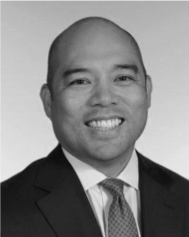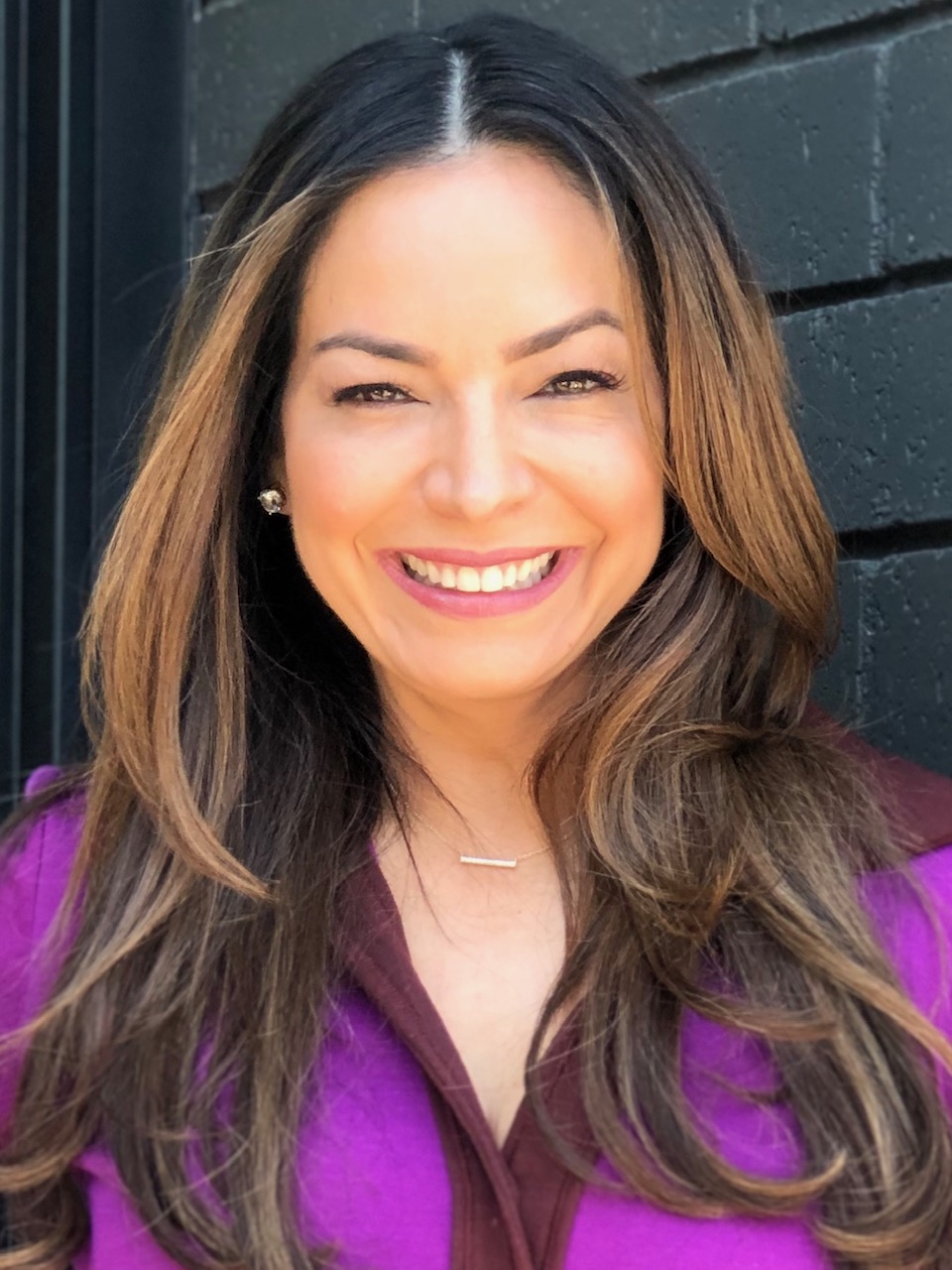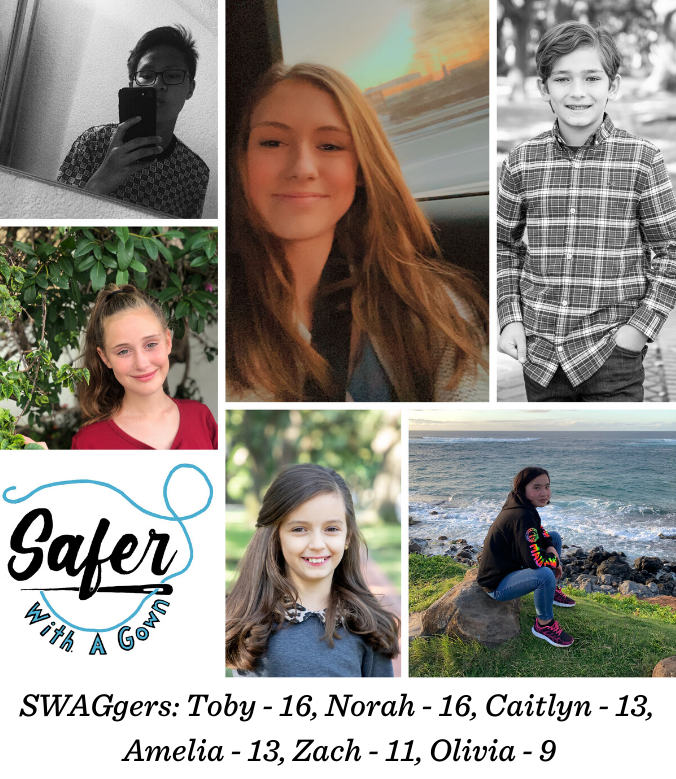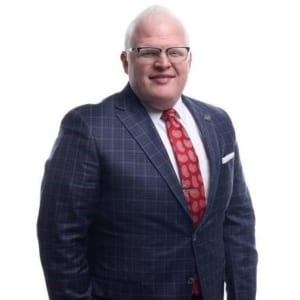Lyceum FrontlinersAs the world works through the COVID-19 global pandemic, in Texas there are countless individuals working on the frontlines to help those in need. Many of those heroes are directors and alumni of the Texas Lyceum. These are their stories.Lyceum Frontliner: Michael Garcia
The healthcare industry has undoubtedly been impacted by COVID-19 in a profound way. New information and research have caused the industry to adapt on a daily, and sometimes hourly basis. Michael Garcia, senior vice president and chief operating officer at Houston Methodist Hospital, has spent his time caring for COVID-19 patients and participating in city, county and state planning to screen and care for patients with the virus. Michael works with leaders in all hospital departments to coordinate patient care delivery. His daily tasks are quite extensive and include understanding frontline clinical staff needs, anticipating the number of incoming COVID-19 patients, caring for non-COVID patients (i.e. heart attack), ensuring the appropriate PPE is available, educating staff, coordinating physicians, supporting medically necessary procedures, coordinating with other hospitals to pool resources and more. A pandemic presents unique challenges because of unpredictability, so it is important to stay flexible and adjust as new information is continuously received. From his experience during COVID-19, Michael believes there is no such thing as overcommunicating. “Communicate to your team members at all levels. Everyone needs to know what is happening in your organization, how your strategy is evolving, and that you care about the team,” said Michael. Daily updates from HR, CMO and hospital leadership are crucial at Houston Methodist, and virtual town halls are consistently held to answer questions. Michael believes establishing organizational structure via an incident command center allows them to make better decisions for each facility. The structure also allows for concerns to be addressed in a timely manner and communicated consistently. “We have a detailed surge plan ready, and we know when and how to implement it in the appropriate areas,” said Michael. Although there have been breakthroughs, Michael wants to remind everyone that vaccines take time to develop. Hydroxychloroquine and chloroquine were both considered potential treatment options, but both have been proven ineffective. While there is still no cure for COVID-19, many more promising therapies and drugs are still being researched and tested. Michael says wearing a mask and socially distancing are ways to minimize the spread of infection. “The main benefit of a cloth face covering for the general public is to prevent people who are already infected from spreading the virus through respiratory droplets from the nose and mouth to others.” In addition, COVID-19 spreads mainly among people who are in close contact (within about 6 feet) for a prolonged period. Spread happens when an infected person coughs, sneezes, or talks, and droplets from their mouth or nose are launched into the air and land in the mouths or noses of people nearby. Peer support groups are available for healthcare workers, and Michael encourages people to participate. He knows the importance of managing and decreasing stress to remain effective. “We recognize and thank the teams that are working together to care for our patients during these difficult times,” said Michael. “The many physicians, nurses, respiratory therapists and other healthcare workers who have stepped up to care for patients are the real heroes amid the pandemic,” said Michael. “I am also very fortunate to work with my fellow Lyceum members at Houston Methodist, including Dr. Roberta Schwartz, EVP and chief innovation officer, and Dr. Marc Boom, president and CEO.” Innovation has played a key role in adaptability among the pandemic. “We have become more innovative and worked internally to develop safety devices to help keep our staff safe and conserve PPE. We made plexiglass boxes to put a barrier between staff and patients, and we built them ourselves because we couldn’t find it elsewhere,” said Michael. He sees the silver lining as how people are learning to wash their hands regularly, which has caused a decrease in many infections. For more information about Houston Methodist Hospital, please visit www.houstonmethodist.org
Lyceum Frontliner: Yvette Casares Willis
When COVID-19 hit, Personal Protective Equipment (PPE) became scarce, and organizations began running out of isolation gowns to wear when taking care of patients. These gowns are crucial to the safety of healthcare heroes, and when a team of six high school and middle school students from Indiana and California between the ages of 9 and 16 recognized the need, they jumped into action. They started a movement called SWAG, which stands for Safer with a Gown, and it has quickly gained traction with a social media reach of over 50,000 and 5,000 website visits. The mission is simple: create a platform to share and distribute a free downloadable isolation gown pattern and instructions for making the gown from new and/or clean, unused bed sheets. Then, have the people who sew the gowns donate them locally or send to the SWAG team for distribution.
When you visit the website, there is a set of directions with a downloadable pattern, designed by the Theatre Department of Butler University, that can be used to make gowns. This pattern has been downloaded over 1,500 times by people in all 50 states who have chosen to get involved and help make gowns. Just a few weeks ago, the organizations received a request from Michigan for 500 gowns. “It’s been a true gift to see these kids come together to create SWAG,” said Yvette. “I'm proud of the Team for starting and running a nonprofit organization as a response to the PPE shortage resulting from COVID-19. I am especially grateful for the opportunity to share this mission with my children, Zach and Livi.” Yvette believes it is important to stick together in these uncertain times. The work these SWAGgers are doing is a glimmer of hope in these unprecedented times that we will rise above adversity and emerge more unified. “As a mother, it is important for me to model and teach them the value and joy of helping others,” said Yvette. “When they look back on this, I want them to remember that this was not the most stressful time of their lives, but a time where they made a real difference. They are learning that when there is a vision, teamwork and collaboration, wonderful things can be achieved - even in a time of crisis.” For more information on what the SWAGgers are doing to help amid the COVID-19 crisis, as well as how you can get involved, please visit www.saferwithagown.com or their Facebook page at https://www.facebook.com/saferwithagown
Lyceum Frontliner: Andrew Romero
At the start of COVID-19, the Austin Police Department’s most pressing need was to establish supply lines of respirator masks, hand sanitizer and gloves to maintain safety. Andrew immediately jumped into action and began helping his department and others around the state secure Personal Protective Equipment (PPE) by vetting suppliers and reaching out to the community for financial support. Andrew’s group volunteered countless hours ensuring his department and beyond received the PPE needed to safely continue working. “I am overwhelmed at the support the business community has given us,” said Andrew. “I especially want to thank the Greater Austin Asian Chamber of Commerce for the work they have done in helping us out.” Because of Andrew and his team’s work, they were able to establish reliable supply lines of non-counterfeit PPE before the area reached peak infections. Their quick actions were crucial in helping slow the spread before it got out of hand. Austin has social distancing ordinances in place, and he is pleased the vast majority of citizens are complying without police interaction. Most people understand why social distancing is required and they are taking responsibility for their actions. “Other than developing a cure for COVID-19, PPE is our best defense against the virus,” said Andrew. “I would like to see more strategies to increase accessibility of PPE to everyone.” “I remember making a final run to the grocery store as the pandemic was beginning, and I noticed the cashier was holding back tears, and I knew why,” said Andrew. “I couldn’t imagine the stress of countless interactions and no PPE. As I left, I took a moment to say thank you for being here for the community, and that this too shall pass.” When he has moments of doubt, he thinks about that interaction and knows who the real heroes are in this crisis. The need for Andrew and his department will be there with or without COVID-19, and he wants the community to know his focus is still on responding to those in need. “My mantra has really been to keep calm and carry on during the pandemic,” said Andrew. He knows we will emerge from this crisis stronger than ever, and he is continually encouraged by people’s willingness to help each other in a time of need.
Lyceum Frontliner: C. LeRoy Cavazos-Reyna
When you think of those on the frontlines of the COVID-19 pandemic, healthcare workers immediately come to mind. But they are not the only ones stepping up to fight in the battle. C. LeRoy Cavazos-Reyna, Vice President of Government and International Affairs at the United States Hispanic Chamber of Commerce (USHCC) in Washington, D.C., is one of the frontline workers whose focus is getting the U.S. economy back on track, with a strong focus on Hispanic and Minority-owned small businesses. The United States Hispanic Chamber of Commerce (USHCC) represents approximately 4.7 million Hispanic-owned businesses across the U.S. who annually contribute an estimated $800 billion to the U.S. economy. LeRoy is a voice of advocacy and technical assistance for these businesses as they navigate the process to access stimulus funding to keep their doors open. America’s 30 million small businesses are the backbone of the economy, but they have taken a huge hit during the COVID-19 pandemic. “In many low-income and vulnerable communities, small businesses play a bigger role because they act as a gathering place,” says LeRoy. “They are vital to the way America operates and how we will bounce back once the pandemic has ended.” LeRoy wants to ensure that stimulus money is getting into the hands of those who need it the most. They are educating America’s Hispanic and Minority-owned small businesses on how to access funding and operational resources. The USHCC offers technical assistance guides, in both English and Spanish, to share information about the CARES Act and what American corporations are doing to help their valued customers. Another important aspect is keeping our communities safe during this time. “Minorities have been some of the hardest hit, and the pandemic does not discriminate,” says LeRoy. “Following CDC guidelines, maintaining distance, and keeping the elderly at home to mitigate the spread are crucial.” He hopes we will see more efficiency in business once we return to our new “normal,” and he believes it has taken us to a new level of professionalism and opportunity because we have accomplished things we did not realize we were capable of. New opportunities have arisen because of online learning and the ability to hold virtual meetings. “I see the heroes of this pandemic to be our healthcare workers, public administrators, and elected leaders who are vigilant in providing resources to their constituents,” says LeRoy. “Gov. Gavin Newsom of California and Gov. Andrew Cuomo of New York are also heroes because of their resiliency and how they have fought for their constituents to receive the help they need, while working with the federal government to access their fair share of national resources”. In his eyes, the fight has just begun, and there is much work to do before we begin to see the light at the end of the tunnel. But his overall message is of resiliency, collaboration, and hope, he reminds us that we will come out of this stronger than ever before. C. LeRoy Cavazos-Reyna is a current Texas Lyceum Director, Class of 2018. For more information on what the United States Hispanic Chamber of Commerce (USHCC) is doing to help amid the COVID-19 crisis, please visit www.ushcc.com. |


 When you think back to the beginning of 2020, the world looked significantly different than it does now. In just a few short months, we have been forced to quickly adapt to an ever-changing situation, and it has brought out creative ideas from all ages.
When you think back to the beginning of 2020, the world looked significantly different than it does now. In just a few short months, we have been forced to quickly adapt to an ever-changing situation, and it has brought out creative ideas from all ages.  Yvette Casares Willis is the mother of Zach and Livi, two of the six who make up the SWAG team. “These young entrepreneurs worked together as a group to come up with the name, design the logo, develop the website on Wix, and help manage social media platforms,” said Yvette. “We (the moms) have supported the kids by filing for non-profit status, opening a bank account and serving as managers.”
Yvette Casares Willis is the mother of Zach and Livi, two of the six who make up the SWAG team. “These young entrepreneurs worked together as a group to come up with the name, design the logo, develop the website on Wix, and help manage social media platforms,” said Yvette. “We (the moms) have supported the kids by filing for non-profit status, opening a bank account and serving as managers.” COVID-19 has undoubtedly turned our world upside down and forced the world to change how we live and work. Andrew Romero, an Austin Police Department organized crime division detective, is one of the many whose workday looks much different than it did just two months ago.
COVID-19 has undoubtedly turned our world upside down and forced the world to change how we live and work. Andrew Romero, an Austin Police Department organized crime division detective, is one of the many whose workday looks much different than it did just two months ago.